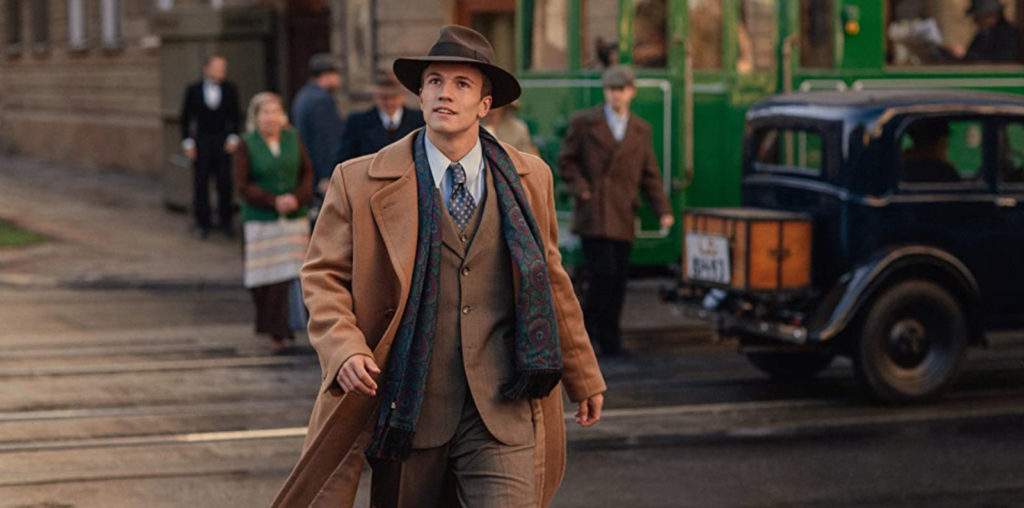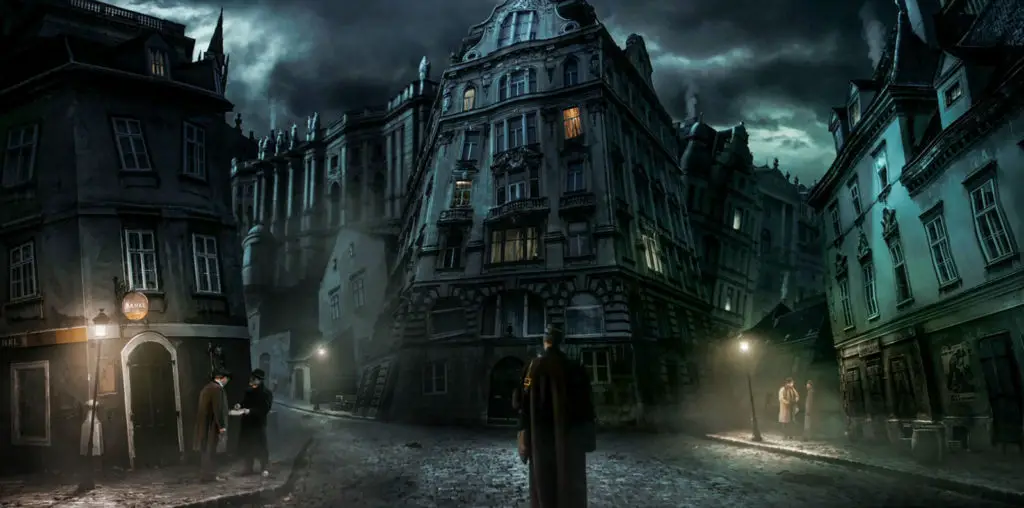
“The father is the first person in the world who chooses you… or doesn’t.”
This startling proclamation, so obvious yet seldom spoken, ushers us into “Absent,” Justin Hunt’s (“American Meth”) confrontational examination of paternal abandonment. But expressions hit harder than words. When a scrawny, inner-city teen stares stoically at the camera, he sheds no tears. But buggy, bespectacled eyes suggest a sad insecurity. The boy explains that his dad was “never there.” With a cynical smirk, he adds that the same is true for nearly “everyone I know.”
Where’s dad?
Personifying the face of heavy metal rage, Leonine James Hetfield removes onstage armor for a telling interview with Hunt. The musician was thirteen years old when his father abruptly up-and-left. “He didn’t even say goodbye,” recalls Hetfield. “He left a note. And it wasn’t even to me.”
Broken boxer Johnny Tapia, a five-time world champion with the love-starved eyes of an orphaned child, never had the luxury of meeting his dad. Before Tapia’s birth, the elder was murdered.
“Absent” also visits bitter streetwalkers and catwalk models. Ministers. Authors. All provide moving perspectives on a spirit-crushing phenomenon that leaves anger, alienation and longing in its cruel wake. We’re also enlightened to a laundry list of shocking statistics, correlating fatherless youth with increased potential for incarceration, suicide and substance abuse.
John Eldredge, author of “Wild at Heart,” speaks of the Father Wound – a permanent, life-shaping sense of mourning and misdirection that results when dad ditches the family nest. “Absent” asks the question, “Can this wound be cauterized?” Will it heal? Hunt hopes so. But make no mistake, his film assures: the process is agonizing and gradual.
“Absent” features plenty of tear-drenched faces. But Hunt isn’t interested in parading despair and misery. He’s more intrigued by how this sadness is processed.
The Vow, for example, acts as a common byproduct of the Father Wound. “I will never repeat what he did.” “I will never trust.” “I will never make my kids feel the way he made me feel.” These fierce proclamations become the film’s mantra – promises that sins of the past will not be repeated.
Hunt also explores society’s growing trend towards the emasculation of males. Sporting the sensitive eyebrows of Sesame Street’s Ernie, Eldredge is compassion personified. But he’s also the first to proclaim that boys are inherently hard-wired for aggression. “They’re told not to play with guns,” the author confirms, an expression of “Come on!” ridicule slathered across his face. “But it’s emasculating. He’s gonna make one out of crackers or sticks.”
According to Eldredge, tempered forms of aggression, with the scraped knees and backyard brawls that result, act as crucial invitations to manhood. Girls have an easy, obvious ticket into womanhood – their first menstrual cycles. In contrast, suggests Eldredge, men have no clear-cut symbol of transition, resulting in a kind of perpetual adolescent limbo – a “prolonged Peter Pan period” that prompts insecurity and a strange sense of, “Who am I?” The adage “Boys will be Boys,” says Father Richard Rohr, is testimony to the healthy power of little-tyke rough-housing – with fathers modeling the challenging tightrope between tentative non-participation and overzealous violence. Which behaviors are acceptable, and which are to be avoided? Hopefully, father knows best.
It’s not just sons who suffer from the Father Wound, proclaims Eldredge. Daughters also yearn for dad’s reassurance, asking, “Do you delight in me? Am I precious? Beautiful? Wanted?” If these questions remain unanswered, insists Rohr, girls often look elsewhere for male affection – sometimes stumbling into an even deeper pit of neglect at the hands of pimps, dealers and wham-bam boyfriends.
Surprisingly, many of the women in Hunt’s film express fewer emotions than their onscreen male counterparts. Red-headed Ginger, for example, works the call center for a Las Vegas escort service. She puts up a brave, stone-faced front when reflecting back on a negligent, drug-addled dad. But shifting eyes and hand-wringing suggest the pushing of uncomfortable buttons.
Hunt interviews two streetwalkers, both of whom demand $20 dollars for five minutes of conversation. Like Ginger, they also talk tough… but this time, we believe them. Resigned fatigue has weathered both faces. Firmly entrenched in addiction and survival mode, neither has the luxury of pondering a father-less past.
“Absent” also reveals the tender cores hidden beneath thick, seemingly-impenetrable layers of machismo. Within their respective professions, Hetfield and Tapia are Alpha Male personified – the toughest of the tough. But in some respects, such charisma is a bluff. Both men learned to lash out as a means of controlling anger and hiding pain – Tapia with gloved fists, Hetfield with punishing sounds. Such cathartic personal expressions prompted legendary success.
But at what cost? Tapia’s prison sentences and drug abuse have threatened to overshadow his triumphs in the ring. Meanwhile, Hetfield’s survival of long-term, brain-pickling alcoholism is nearly as staggering as his record sales.
“Absent” is ultimately a hopeful film. Its latter scenes suggest that a societal shift to re-prioritize fatherhood is alive and well. Through men’s groups. Church discussion. Books. Even so, Hunt’s documentary remains a disturbing, unsettling viewing experience. Why? Because despite its optimism, the film confirms a societal flaw so matter-of-fact and common, it’s becoming the exception and not the rule.
Shame on you, Dad. Step up.

